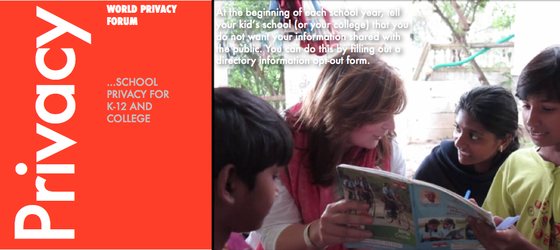Another reminder that student privacy matters: Student doxing through FERPA loopholes
Today Inside Higher Ed wrote an excellent article about the relationship of the Family Educational Rights and Privacy Act (FERPA) and the recent doxing of Harvard students. In short, it was easy to dox the students based on information the college published — legally — about them. FERPA was supposed ...


